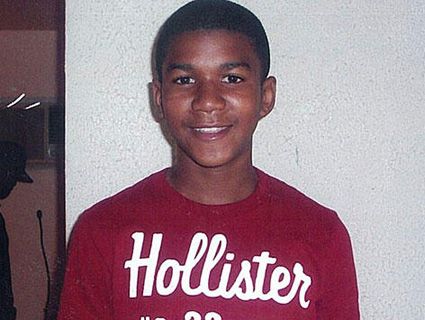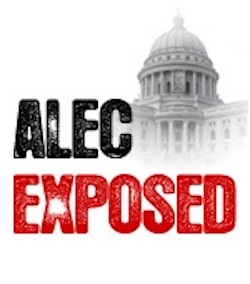ALEC Ratified the NRA-Conceived Law That May Protect Trayvon Martin's Killer
 A Florida law that may protect the man who shot and killed 17-year-old Trayvon Martin in February is the template for an American Legislative Exchange Council (ALEC) "model bill" that has been pushed in other states. The bill was brought to ALEC by the National Rifle Association (NRA), and fits into a pattern of ALEC bills that disproportionately impact communities of color.
A Florida law that may protect the man who shot and killed 17-year-old Trayvon Martin in February is the template for an American Legislative Exchange Council (ALEC) "model bill" that has been pushed in other states. The bill was brought to ALEC by the National Rifle Association (NRA), and fits into a pattern of ALEC bills that disproportionately impact communities of color.
Florida's "stand your ground," or "castle doctrine," law could prevent the prosecution of George Zimmerman, the 28-year-old "neighborhood watch" vigilante who shot the unarmed Martin as the teen returned from a trip to 7-11 with an iced tea and a pack of Skittles. The law, also pushed by its supporters under the name the "Castle Doctrine," changes state criminal justice and civil law codes by giving legal immunity to a person who uses "deadly force if he or she reasonably believes it is necessary to do so to prevent death or great bodily harm to himself or herself or another or to prevent the commission of a forcible felony." It also bars the deceased's family from bringing a civil suit.

 "Change is in the air and I'm not just talking about the weather," Lori Compas told a crowd of an estimated 50,000 people gathered at the Wisconsin State Capitol last Saturday on a sunny and unseasonably warm afternoon. "I'm talking about an awakening all across Wisconsin. A renewed sense that all of us matter, [that] all of us have a voice, and by working together we can bring our state back to its best traditions." The mass rally at the Wisconsin Capitol, marking the anniversary of the passage of Governor Scott Walker's collective bargaining bill, displayed a sense of celebration rather than protest.
"Change is in the air and I'm not just talking about the weather," Lori Compas told a crowd of an estimated 50,000 people gathered at the Wisconsin State Capitol last Saturday on a sunny and unseasonably warm afternoon. "I'm talking about an awakening all across Wisconsin. A renewed sense that all of us matter, [that] all of us have a voice, and by working together we can bring our state back to its best traditions." The mass rally at the Wisconsin Capitol, marking the anniversary of the passage of Governor Scott Walker's collective bargaining bill, displayed a sense of celebration rather than protest. In its
In its  In a presidential primary season marked by the rise of "Super PACs" and an explosion of corporate spending in elections, Vermont voters have raised their voices against special interest money in politics. On Super Tuesday,
In a presidential primary season marked by the rise of "Super PACs" and an explosion of corporate spending in elections, Vermont voters have raised their voices against special interest money in politics. On Super Tuesday,